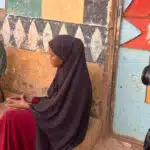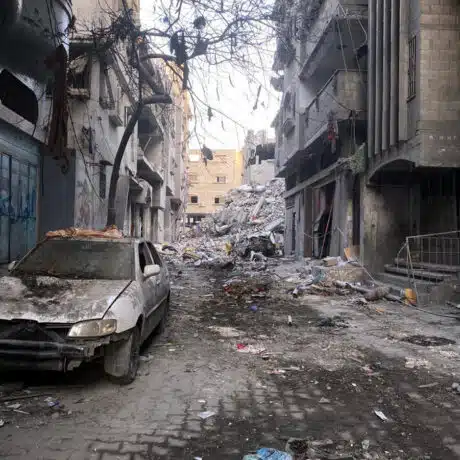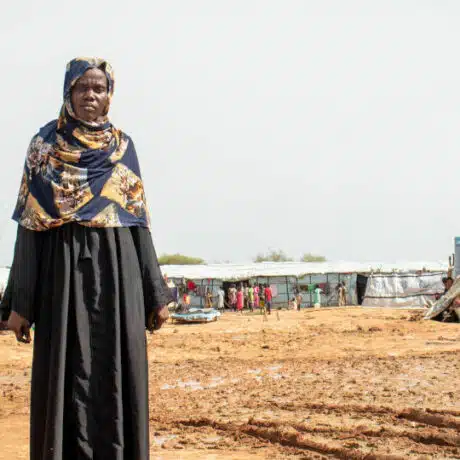News and Stories - Emergencies - 16 May 2023
Disaster Risk expert Sara Sinada on Sudan
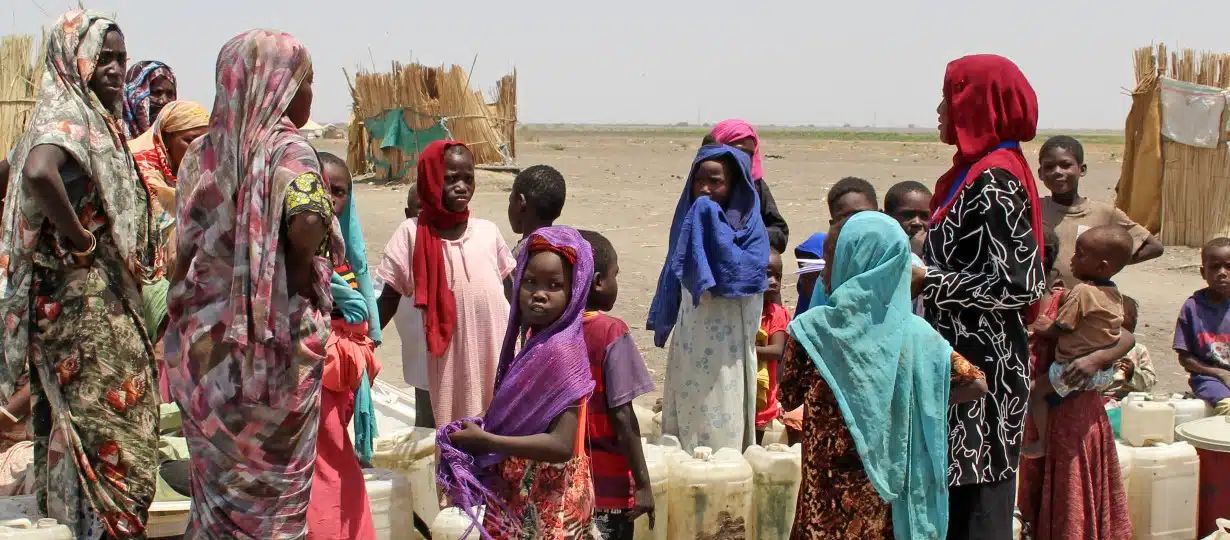
“On April 15th people woke up to the sounds of bombs detonating and stray bullets killing people in the safety of their own homes.”
In May 2023 Plan International Australia’s Sara Sinada was invited to appear on ABC News Breakfast and The Drum to discuss the war in Sudan, in particular, escalating conflict and catastrophic damage to infrastructure in Khartoum, Darfur and El-Obeid that is endangering lives and displacing thousands of people.
Speaking not only in her capacity as a Disaster Risk Management expert, but also from her very personal connection as a Sudanese Australian, Sara painted a harrowing image of the current situation in the country.
“My family has been caught in this crossfire. My brother, he was telling me, ‘we’re all under our beds, under dining tables trying to stay away from stray bullets flying into people’s windows’. My uncle’s building was hit by not one but two airstrikes on different days. Luckily, he lives abroad but his building is only a few houses away from the rest of my family. It could have been anyone.”
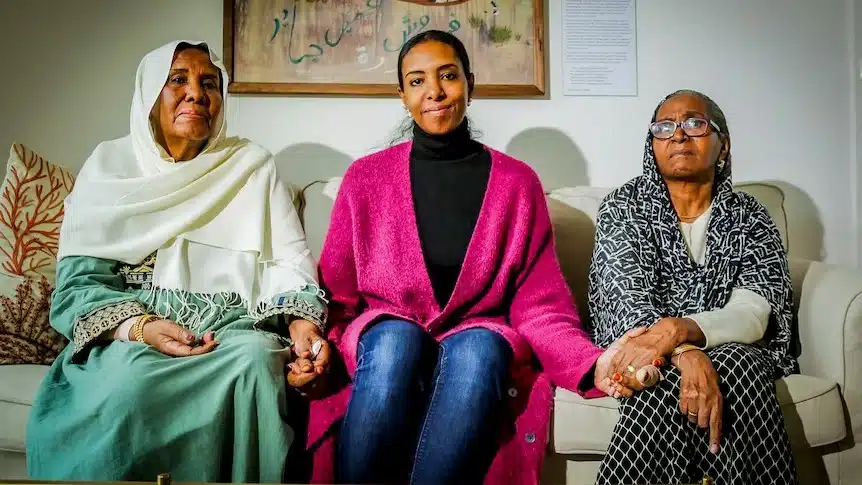
The conflict has also catalysed a number of other challenges, from electricity outages to hospitals, supermarkets and other services being completely shut down.
“We’re dealing with a myriad of issues, first and foremost, the lack of medical supplies and the lack of access to food and water,” explained Sara. “These are basic life saving interventions that need to get to Sudan as soon as possible. People who are fleeing to the borders are mainly people who are unable to access hospitals and unable to get basic medications from their pharmacies – people who need cancer treatment, people who need dialysis. And what’s happening is that these people are dying everyday by the borders, trying to flee this warzone.”
“Without access to electricity, access to water, food supplies depleting and supermarkets not working, people have to flee. They started leaving their homes with nothing but the clothes that they had on, leaving everything precious and everything valuable, their memories… everything behind.”While acknowledging the severity of the conflict – described by The Guardian as ‘a power struggle between military factions’ – Sara emphasised that public sentiment remains hopeful and united, “As dire as the situation is, Sudanese people are very highly aware that this is not our fight, this is not our war, it’s not a civil war. It’s a fight between two war-mongers.”
And within the Sudanese community, an uplifting display of collective action and camaraderie in the face of this crisis has been heartening for Sara as she watches from afar, “The ray of hope is that we are seeing a lot of incredibly inspiring action,” she shared.
“Local actors coming together, risking their lives to provide support to those who need it. We’ve got the Sudanese Doctors Union… the Sudanese Australian Doctors union as well, working together to make sure medical needs are being delivered where it needs to be. We’re seeing local actors at the neighbourhood levels in Khartoum and Darfur also coming together to provide food and water to families who need it, in a very organised way. Even in Darfur two days ago, local leadership brokered a peace deal within certain parts of Darfur to ensure there is a real ceasefire, to ensure people are able to at least access their basic life saving needs.”
More stories of community resilience have been relayed by Sara’s family in Khartoum – “In my own neighbourhood, my aunt was telling me, one of our neighbours was delivering a baby and in need of a midwife. Through youth neighbourhood groups they were able to put together a database and make sure that she was able to deliver safely, in the safety of her own home, in the middle of a war.”
There’s a lot of hope, and this also presents itself as a very strong opportunity for Australian nonprofits and the international community to work directly with these actors on the ground to deliver this assistance that is needed in a timely manner.”Plan International is currently preparing to mount a humanitarian response to the crisis to help the most vulnerable and those most affected by this crisis, particularly the influx of refugees fleeing to neighbouring countries. Together with the Department of Foreign Affairs and Trade (DFAT) and a consortium of NGOs, we are working to find ways to establish humanitarian corridors within Sudan that would allow us to deliver humanitarian assistance where it is needed most.
And from Sara’s intersecting perspectives as a humanitarian and a Sudanese Australian, she says she is quite hopeful following a meeting with the Assistant Foreign Minister and representatives from the Department of Home Affairs. “That was an amazing precedent that really shows the good will of the Australian Government and their willingness to listen and act on it. I also have a lot of faith in the Department of Foreign Affairs and Trade. Time and time again, we’ve seen crises erupt all over the world, and time and time again, Australia as a nation provides resources to support those in need.”
And Sara’s call to action for our supporters? “The urgency of what is happening in Sudan is something that cannot be overlooked, so I’m urging the public to speak up on the issue and reach out to their MPs to push for more urgent action to take place,” she told the Drum, “There’s a lot that we can do, we’re not helpless.”
Help provide life-saving aid to children and families fleeing violence in Sudan now.

